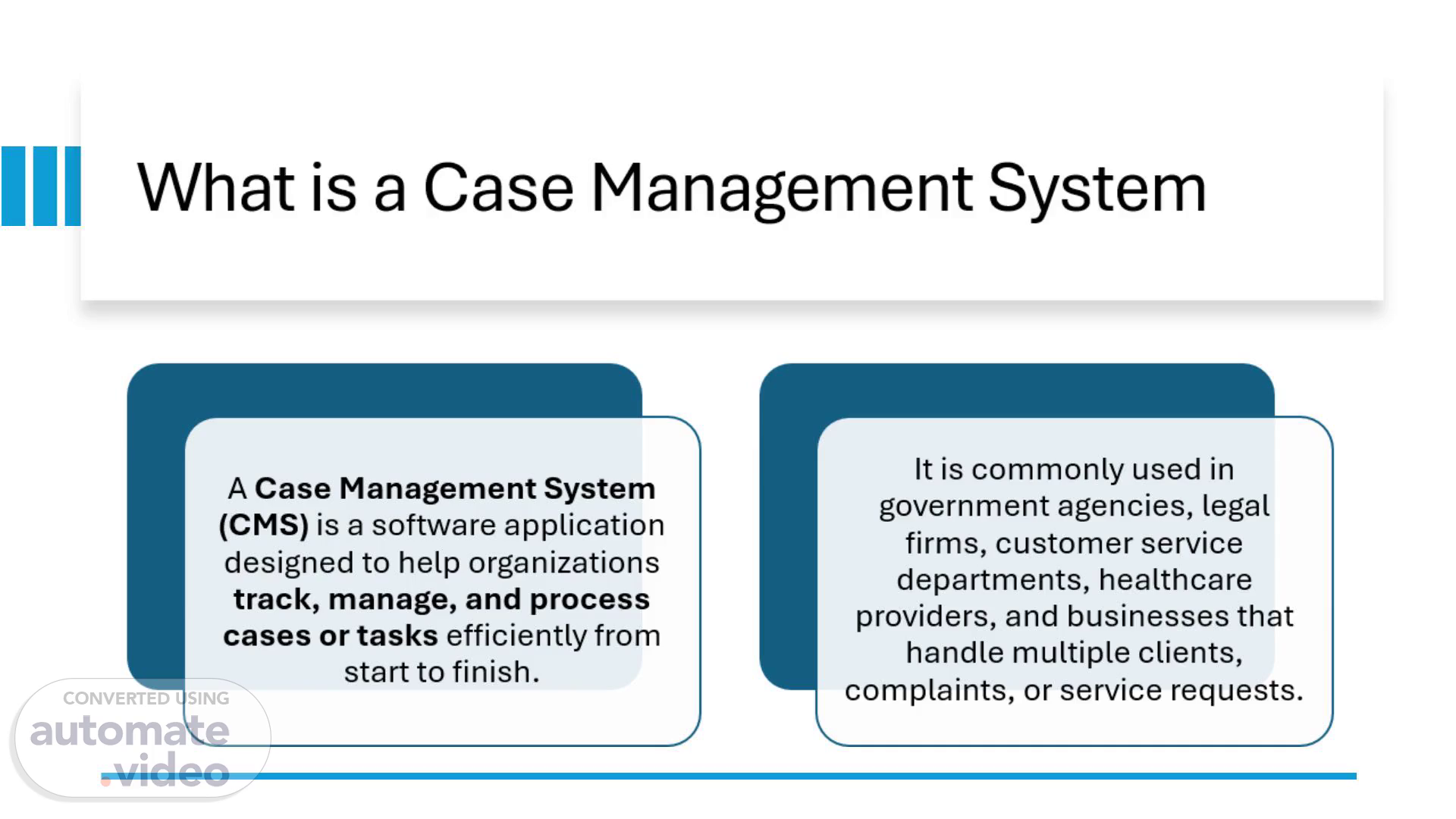
What is a Case Management System
Scene 1 (0s)
[Audio] What is a Case Management System A Case Management System (C-M-S--) is a software application designed to help organizations track, manage, and process cases or tasks efficiently from start to finish. It is commonly used in government agencies, legal firms, customer service departments, healthcare providers, and businesses that handle multiple clients, complaints, or service requests..
Scene 2 (29s)
[Audio] Key Features of C-M-S Case Creation & Tracking: Create new cases with unique IDs and track their progress from initiation to resolution. Document Management: Store and organize documents, images, forms, Statements and evidence related to each case. Workflow Automation: Automate repetitive processes — like case assignments, reminders, and approvals. Communication Log: Record all interactions (emails, notes, calls) between staff and clients. Status Updates & Notifications: Real time alerts for pending actions, deadlines, or case status changes. Reporting & Analytics: Generate reports on case volume, turnaround times, and staff performance. User Access Control: Set permissions so only authorized staff can access or edit specific cases..
Scene 3 (1m 29s)
[Audio] Challenges Without a C-M-S--: Manual paperwork and delays Lost or duplicate information Poor tracking of case progress Lack of accountability and reporting CMS Solves This By: Centralizing data Automating workflows Tracking progress in real time Enabling transparency and faster decisions Why Firms need a C-M-S.
Scene 4 (1m 57s)
[Audio] Benefit of having a C-M-S Description Efficiency Faster processing of cases Transparency Real time tracking and visibility Accountability Audit trails for every action Accuracy Reduced human error Reporting Generate instant reports for management.
Scene 5 (2m 14s)
[Audio] Case Workflows Customer Service Officer – first point of contact between complainant/ aggrieved party – this is where the case intake happens Assessment – Case details verified and categorized Assignment – Assigned to appropriate officer/team Investigation / Action – Case handled, tracked, Prosecuted and documented Resolution / Closure – Final decision recorded and report generated Archiving – Closed cases securely stored for future reference Workflows can be customised based on your company needs.
Scene 6 (2m 53s)
CMS in Action (Example: FCCC). Scenario: Consumer Council (FCCC) uses a CMS to manage consumer complaints. How it helps: Customers submit complaints online Officers track and resolve issues in one system Managers view dashboards of open/closed cases Automated email alerts keep complainants informed.
Scene 7 (3m 21s)
Final Thoughts. Ultimately, a Case Management System transforms the way your organization operates by turning complex, manual processes into streamlined, intelligent solutions that drive real impact..
Scene 8 (3m 38s)
[Audio] Good News!!! We also have a Mobile A-P-P for lodging complaints/ Cases. check out the C-M-S web: Link: qitplus.